Dartmoor wild camping: What next and how did we get here?
A bitter dispute between a millionaire hedge fund manager and campers he tried to ban from pitching up on his land may have come to an end, Matt Mathers reports


Should members of the public be allowed to camp on Dartmoor without first asking permission?
This is the question that has left Devon bitterly divided over the past six months. And now another twist has come after the second-highest court in the land ruled in favour of Dartmoor National Park Authority’s (DNPA ) appeal against a ban on the vast moorland.
Court of Appeal judges found that the law “confers on members of the public the right to rest or sleep on the…Commons, whether by day or night and whether in a tent or otherwise” as long as byelaws are followed.
Monday’s ruling was the latest twist in a legal battle between wealthy landowners and members of the public.
The row started back in January when Alexander Darwall, the stern-faced banker who made a fortune in France, gave £90,000 to Nigel Farage’s party, £5,000 to the local Tory MP, bought a large chunk of Dartmoor and promptly banned the ancient right of local folk to camp under the stars.
Mr Darwell’s critics would have you believe he is a modern-day version of Poldark villain George Warleggan.
His friends, meanwhile, say he is more like Ross Poldark from the popular historical drama set in Cornwall, a heritage hero who is saving a national park by stopping people who endanger its wildlife and pollute the landscape with litter – and much worse.
He and his wife Diana argued that some wild campers on their land caused problems to livestock and the environment.

They sought a court declaration that members of the public could only pitch tents there overnight with their consent and in January the High Court ruled in their favour.
Mr and Mrs Darwall, who keep cattle on Stall Moor, which forms part of their more than 3,450-acre estate in the southern part of Dartmoor, secured a finding from a judge that a 1985 law, which regulates access to moorland, does not provide a right to wild camp.
But to those who, like their families before them, regularly enjoy overnight stays on the land, the decision was one they could not stand for and protests soon started to build.
An under fire DNPA later announced it would appeal against the High Court ruling that declared people need Mr Darwall’s – the landowners – permission to camp.
The pressure came from Britain’s camping and walking communities, thousands of whom travelled to protest against January’s ruling.
Right to Roam, the environmental activist group, was one among those who travelled to the southwest, organising a march in which an estimated 2,000 people took part.
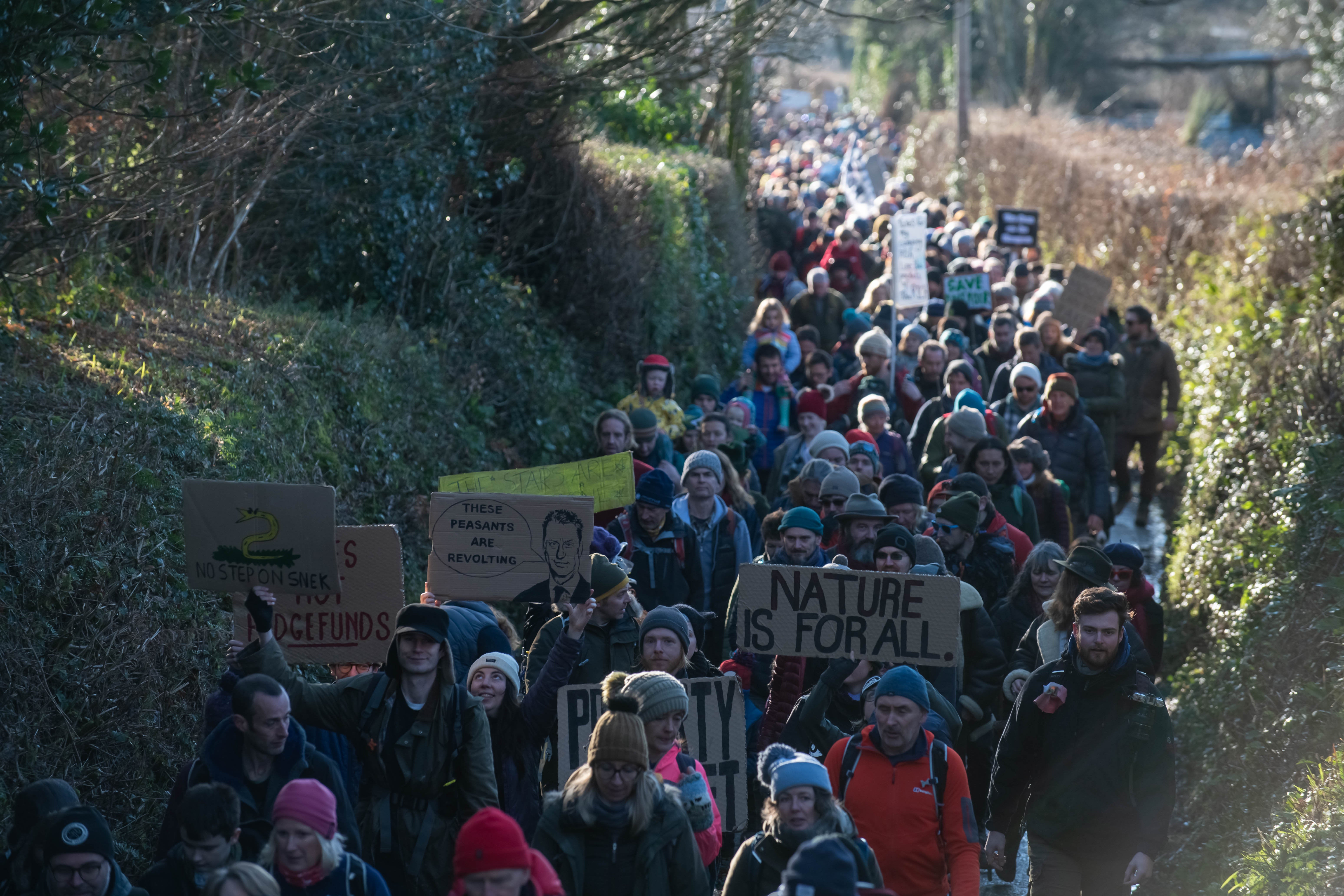
Walkers weaved through the picturesque village of Cornwood and past the Stall Moor, at the heart of the Darwalls’ court argument.
There was singing and dancing at Croken Tor – the traditional centre of Dartmoor, where tin miners would meet to adjudicate disputes in years gone by.
Hand-painted signs with cartoon depictions of Mr Darwall featured slogans such as “please sir, I want some Moor” and “the peasants are revolting”.
While protesters came from as far as Essex and the Midlands, there was a strong local contingent determined to show their opposition against what they believe should remain a space free to use for all.
Devon native Guy Singh-Watson, a farmer and creator of Riverford, an organic farm and UK-wide organic vegetable box delivery company, said he camped on Dartmoor on many occasions over the past 50 years and has never found “so much as a crisp packet left behind”.
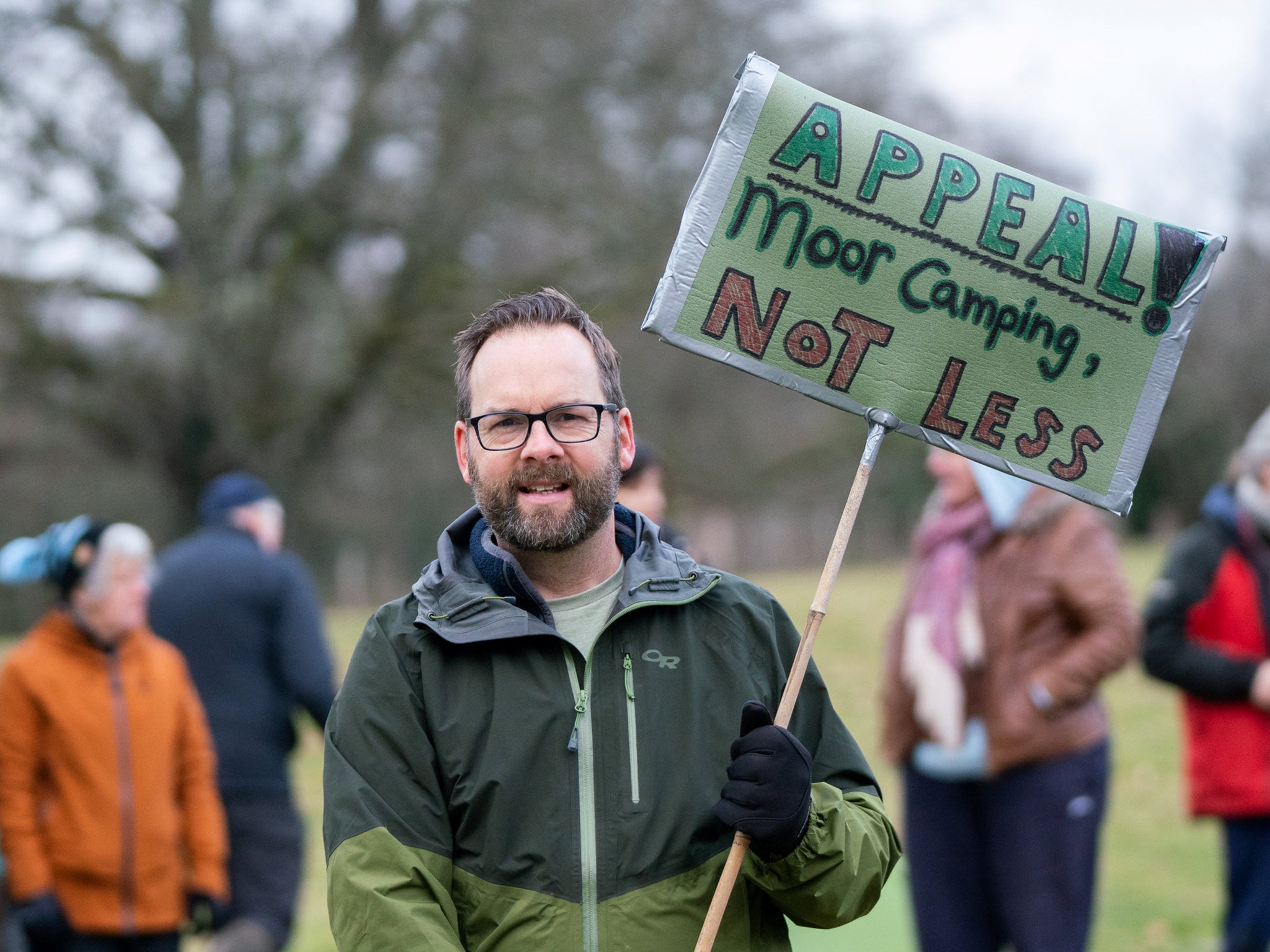
The DNPA said it would “endorse” an apparent compromise – the “new permissive system” in which landowners would grant permission to the authority to allow the public to wild camp.
The authority also said it would investigate which areas of common land, owned by DNPA, could be opened up to backpack camping.
The “permissive system” would have involved landowners entering into a legal agreement with DNPA, with up to £300 paid annually to landowners who opt in.

A DNPA report said this money would be taken from the Projects Fund in 2023/24 and in future years would be built into the revenue budget.
Those protesting feared it was the start of a movement and asked what other landlords could decide next.
Landowners would be able to keep the fee, but according to the report, several had already indicated that they may donate it back to the National Park.
Areas where wild camping could take place, without the public having to seek individual permission from landowners, were already being shown on an interactive map on the authority’s website.
Anyone planning to wild camp was asked to refer to the map and follow all “leave no trace” principles so they had no impact on the area where they have been.
This system was agreed “in principle” with the Dartmoor Commons Owners’ Association within days of the High Court judgment made on 13 January.
Dartmoor National Park – facts and figures
Source: dartmoor.gov.uk
- Dartmoor National park is 368 square miles or 954 square kilometres. It’s about 20 miles from North to South and 20 miles from East to West. That means it’s roughly the same size as London, or about the same size as 20,000 football pitches.
- Dartmoor National Park is created from land owned by a range of people including lots of farmers and The Duchy of Cornwall (Prince Charles). Some of the land, including Haytor, belongs to Dartmoor National Park Authority.
- The highest point on Dartmoor is High Willhays Tor. It’s 621 metres or 2,039 feet above sea level.
- The lowest point on Dartmoor is Doghole Bridge. It’s 30 metres or 98 feet above sea level.
- 65% of Dartmoor is made of granite – rock which was created around 295 million years ago.
- There are over 160 tors on Dartmoor. Tors are where the granite rock that is underneath Dartmoor shows through.
- There are three visitor centres at Dartmoor, one at Princetown, one at Haytor and one at Postbridge.
- 34,500 people live on Dartmoor.
- Today about 90% of the land on Dartmoor is used for farming. Farmers keep 50,000 cows, sheep and ponies on Dartmoor.
Campaigners initially hit out at the deal, which they said was a “ransom note” from landowners like the Darwalls, who would be able to revoke permission to camp at any time.
Richard Foord, the Liberal Democrat MP for Tiverton and Honiton in Devon, said in a Twitter post at the time that fully supported the authority’s decision to appeal and hoped the ruling could be overturned,
The uproar in Devon spread to Westminster and The Guardian reported Labour would pass a right to roam act if it came to power, as a direct reaction to the wild camping ban.
The DNPA’s challenge to the January ruling hit the Court of Appeal earlier in July and in one session lawyers for the Darwalls argued that wild camping is not recreation because sleeping is not an enjoyable activity.
But Sir Geoffrey Vos, Lord Justice Underhill and Lord Justice Newey found that it was.
Sir Geoffrey said the "critical question" was whether wild camping could be considered a form of "open-air recreation", finding it was.

He said: "The fact that a tent is closed rather than open cannot convert the wild camping from being an open-air recreation into not being one.
"In my judgment, that walker is still resting by sleeping and undertaking an essential part of the recreation."
Lord Justice Underhill, who agreed with Sir Geoffrey, added the byelaws "provide a workable structure whereby a proper balance can be preserved between the rights of those accessing the commons and the rights of the owners of the land and others".
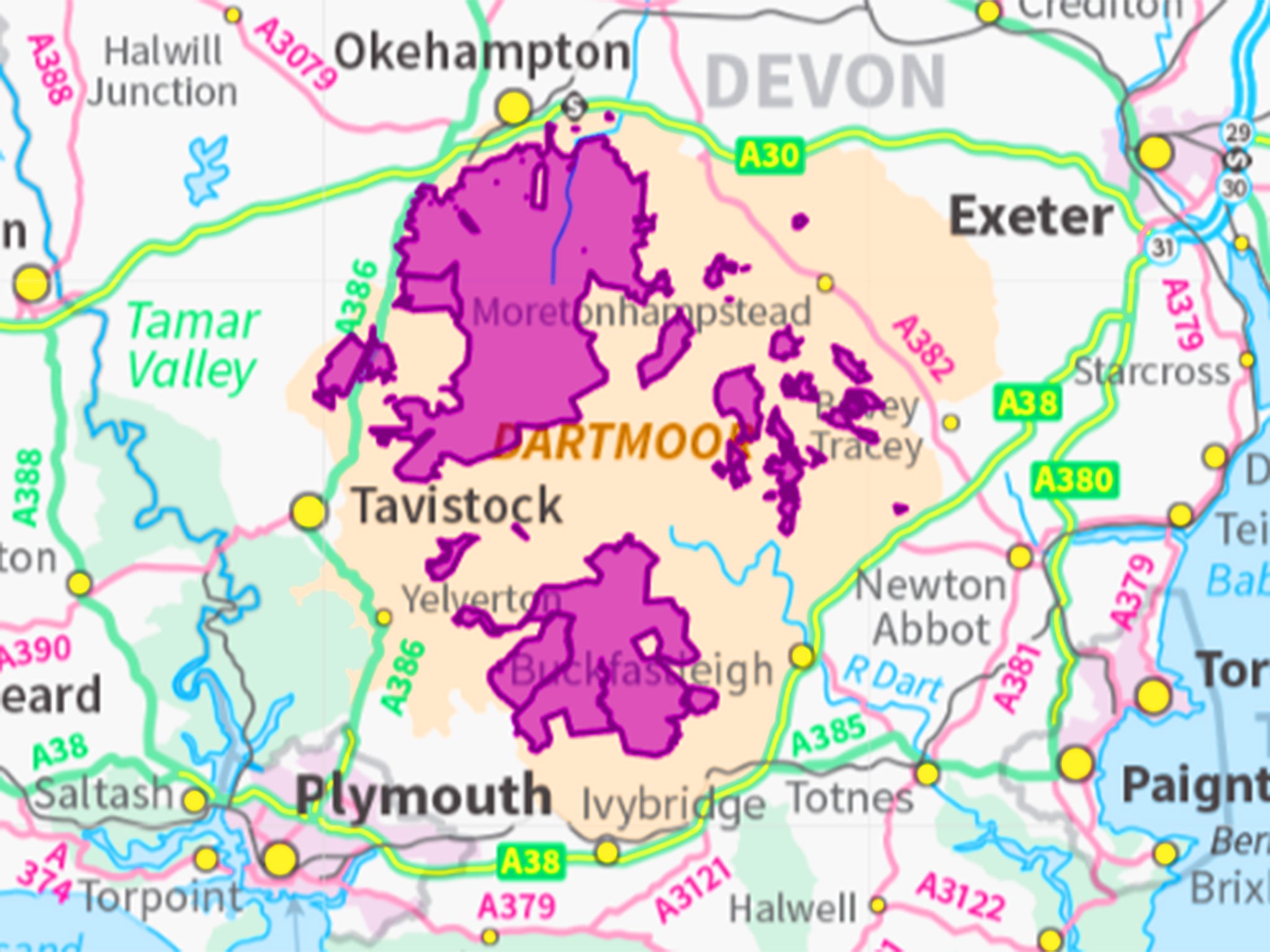
He added: "Many people take pleasure in the experience of sleeping in a tent in open country, typically, though not invariably, as part of a wider experience of walking across country, and perhaps engaging in other open-air recreations such as birdwatching, during the day.
"It is a perfectly natural use of language to describe that as a recreation, and also as occurring in the open air notwithstanding that while the camper is actually in the tent the outside air will be to some extent excluded."
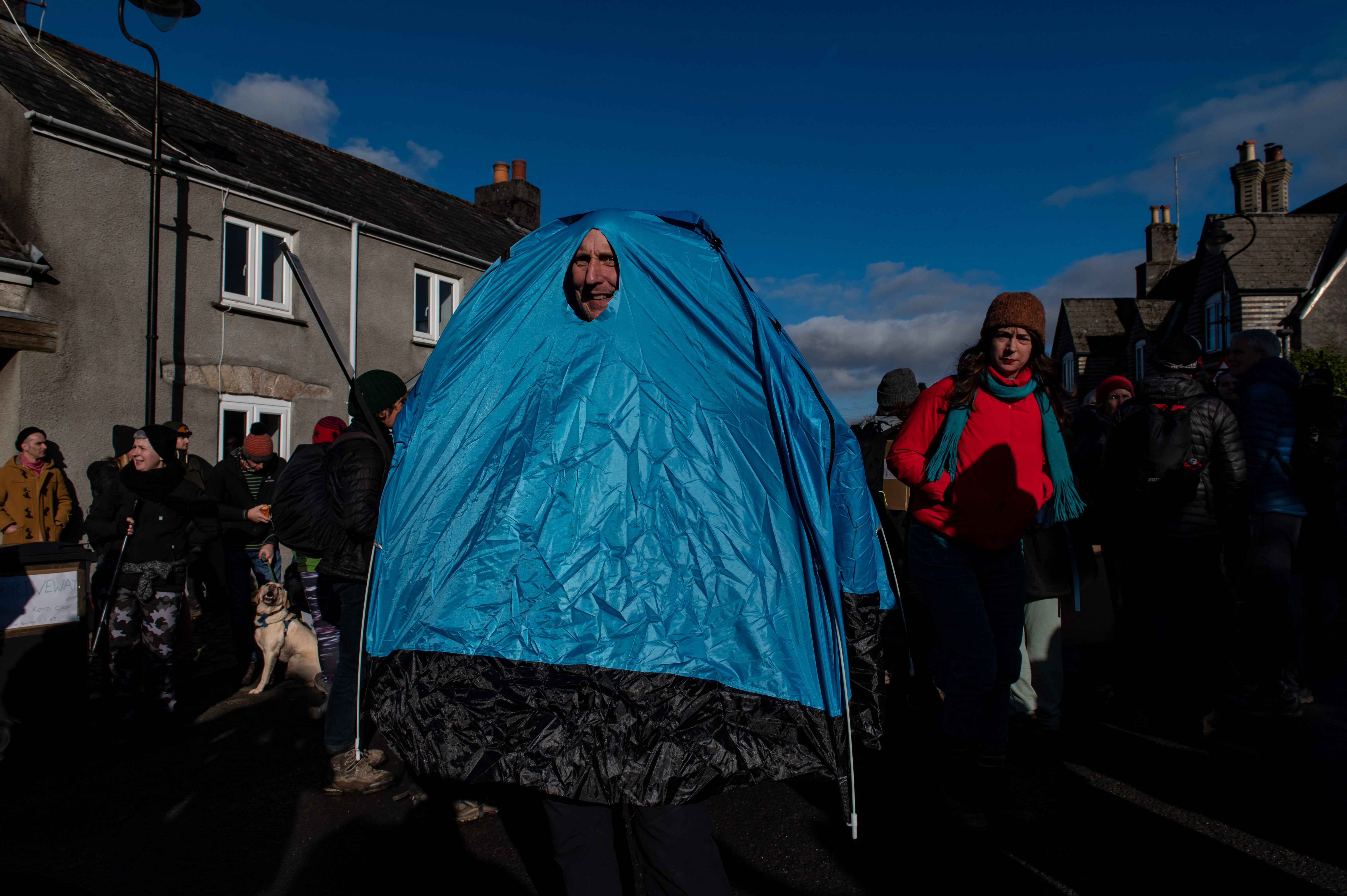
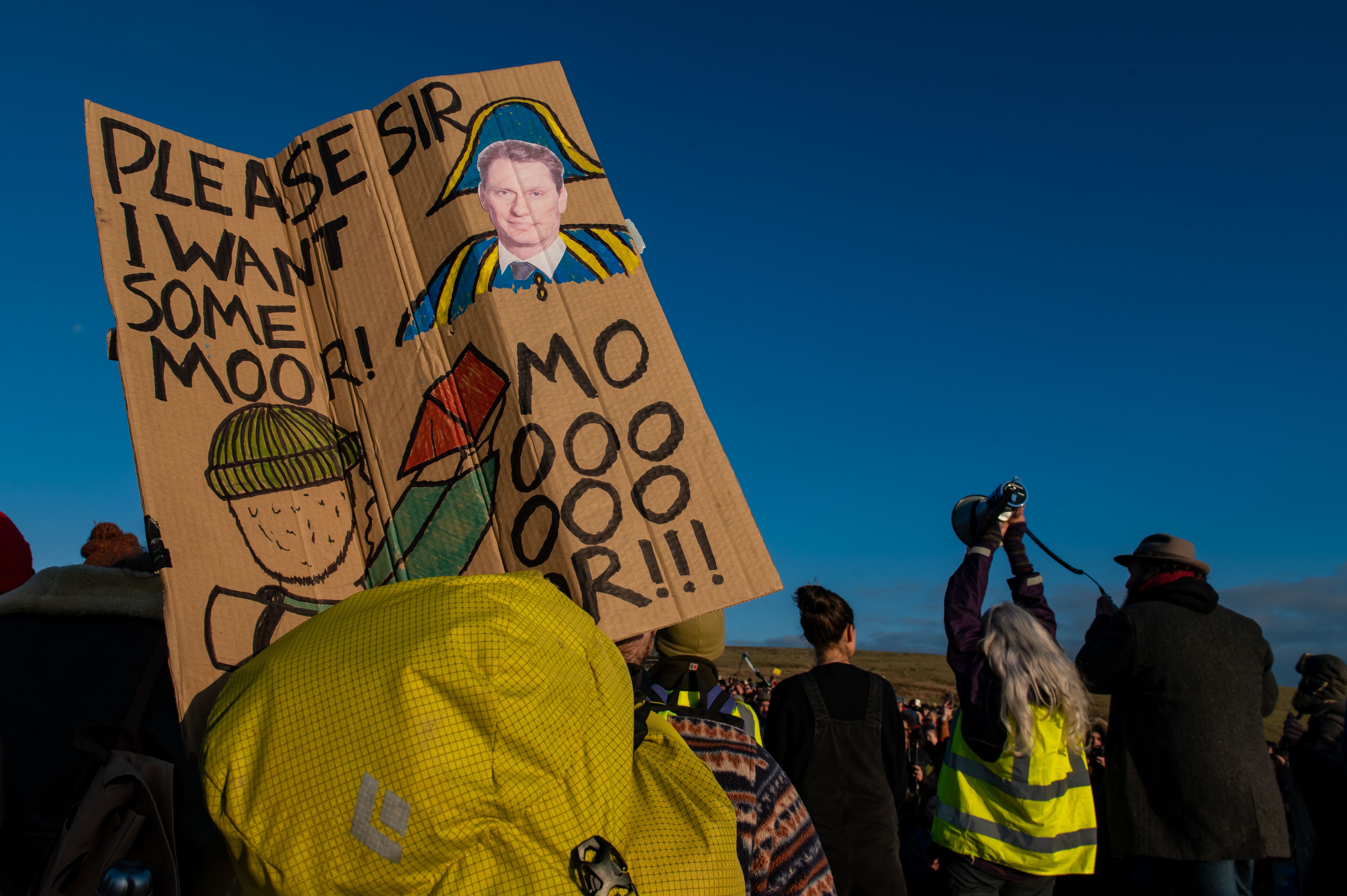
Sir Julian had previously found that the meaning of the legislation was "clear and unambiguous" in that it conferred a "right to roam" which did not include "a right to wild camp without permission".
Monday’s appeal decision was welcomed by the Open Spaces Society, which intervened in the case.
Dartmoor National Park, designated in 1951, covers a 368-square mile area that features "commons" - areas of unenclosed privately owned moorland where locals can put livestock.
The DNPA previously said backpack campers can access nearly 52,000 acres of common land across the national park and can stay overnight under a new "permissive system" as long as they follow a code of conduct.
Join our commenting forum
Join thought-provoking conversations, follow other Independent readers and see their replies
Comments


Bookmark popover
Removed from bookmarks